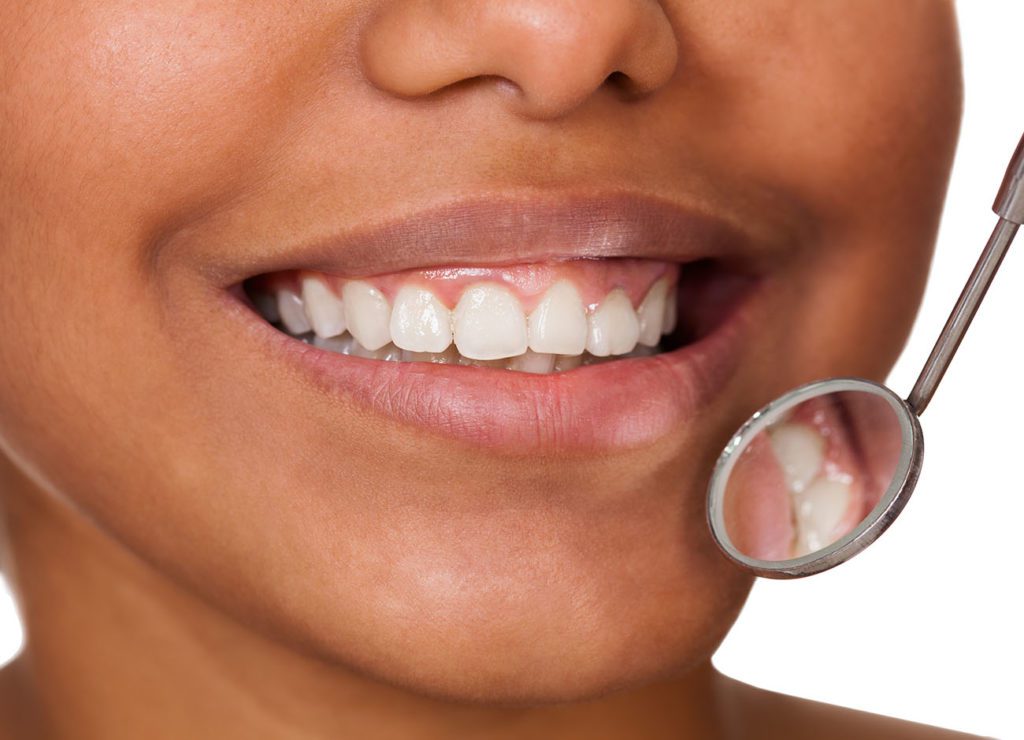Gingivitis, or gum inflammation, is a common yet reversible oral health problem. However, if gingivitis progresses, it can become periodontitis. Periodontitis, or gum disease, is an infection caused by harmful bacteria. A buildup of this bacteria on and around the gums can lead to gum recession and even eventual tooth loss.
The Dentists of Newtown offer periodontal disease treatment to patients in Newtown, PA. They work with patients to fully understand their dental and health history as well as their current needs to provide high-quality restorative dental care.

Signs of Gum Inflammation and Disease
Common symptoms of gingivitis and periodontitis may include:
- Red, swollen gums
- Gums that bleed when brushing and flossing
- Receding gums
- Bad breath (halitosis)
- Bite problems
- Pus between the gums
- Tooth or bone loss
Please contact our dental office if you have noticed any of these symptoms and we will create a customized treatment plan for you.
How to Treat and Prevent Gum Disease
Scaling and root planing are treatments that we can provide patients at routine dental visits. During a scaling treatment, we use a metal dental tool to remove plaque from around the gums. For root planing, we go further beneath the gums to smooth down the tooth roots. Root planing helps the tooth roots reattach to teeth.
For patients who already have gum disease, we will recommend gum grafting. During gum grafting treatment, we take healthy gum tissue from one area of the mouth or body and place it where it is needed. This treatment benefits patients who have receded gums as a result of periodontitis.
The best ways to prevent gum inflammation from turning into gum disease is to:
- Maintain a good oral hygiene routine
- Refrain from using tobacco products
- Stay hydrated with water
Remember to schedule regular dental appointments every six months for dental cleanings and x-rays. We can provide thorough dental cleanings using specialized dental tools.
Patient Review
Periodontal Disease Treatment FAQs
Do you have further questions about periodontal disease treatment? Continue reading to find answers to frequently asked questions in our office.
What are the stages of periodontal disease?
There are four main stages of periodontal disease. The first is known as gingivitis, which involves mild gum inflammation and bleeding. The second stage of periodontitis is slight periodontal disease. During this stage gums may become more inflamed, tender, and red. The third stage is known as moderate periodontitis. This stage is irreversible, however treatment can’t stop the disease from progressing. The last stage of periodontal disease is advanced periodontitis. This is the most severe stage of periodontitis and patients are at risk for bone and tooth loss.
What are the most common symptoms of periodontal disease?
The most common symptoms of periodontal disease are bleeding gums, swelling, and redness. As the disease progresses patients gums may begin to recede, and teeth may begin to feel loose. Frequent bad breath may also be associated with periodontal disease.
Can my periodontist reverse periodontal disease?
In the beginning stages of periodontal disease, we can reverse all damage, however as the disease progresses treatment is used to stop the progression of the disease and prevent future damage. The only stage of periodontal disease that is fully reversible is gingivitis.
How can I prevent periodontal disease?
The best way to prevent periodontal disease is to maintain your oral hygiene. Scheduling regular dental cleanings and examinations is a great preventative measure to maintain your oral health and prevent periodontal disease from developing. Also if you schedule regular dental exams, we will be able to catch periodontitis in its early stages and reverse it before it causes permanent damage.
How does scaling and root planing help treat periodontal disease?
Scaling and root planing remove plaque and tartar above and below the gumline. The procedure also cleans pockets around teeth that may have infections. Furthermore, root planing smoothens tooth roots and promotes gum reattachment. Overall, gum disease patients need this treatment to reduce gum inflammation and bacterial pockets and stop disease progression.
Will I lose my teeth if I have periodontal disease?
If you go too long without treating your periodontal disease, it can result in tooth loss. The disease can damage the structure that supports the teeth. This can lead to potential tooth loss. However, the good news is that early detection and treatment can prevent tooth loss. Moreover, regular dental check-ups and good oral hygiene can help prevent and manage the disease.
Restore Your Gum Health Today
Do you want to treat your developing gum problems? Request a dental appointment with our dental team online. You may also call our dental office today at 267-692-2394.
